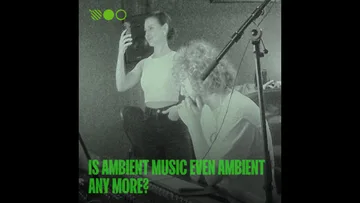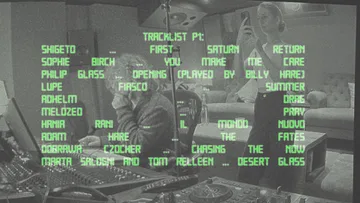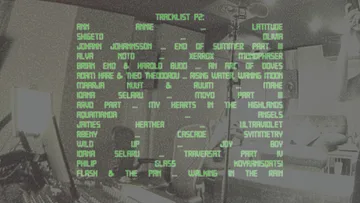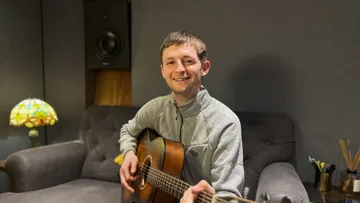Is Ambient Music Even Ambient Any More?

Adam Hare reflects on ambient music and the impact it has on the people who listen to it. Read this article and listen along with a 2 hour mix of ambient, minimal and neo-classical music recorded with composer Ioana Șelaru.
“Terms like ambient, minimal, or neoclassical can mean different things to different people, but for me, it's all about simplicity” - Ioana
Listen to the mix here
Adam:
I find great enjoyment in listening to ambient music. So often are the moments in my life where I need focus and clarity, that I find myself reaching for something to occupy the part of my brain obsessed with making noise… so to speak. However, it would be unfair to reduce the artistry involved with the form to nothing more than a productivity tool, gimmick or solution to some acquired human need. In fact, sometimes I find myself so engaged with the music I’m listening to that whatever I was doing originally ends up becoming secondary. So when I was curating the tracks for my radio show it got me thinking… is ambient music even ambient anymore?
Two of my most memorable musical experiences were when listening to music by rBeny. One was while on a bus journey, I remember to this day how cathartic it felt as I was subject to the emotion captured in the piece. The other moment came when l managed to almost miss my flight while listening to it, drifting off to sleep in a Croatian airport. A balance of melancholy and tranquillity, beautifully delicate and sentimental. It’s a wonderful effect, being both stimulating and relaxing at the same time.

“While listening to this type of music, my brain stops, and it's like I'm in a trance. My mind is empty, and no thoughts cross my mind” - Ioana
Ambient music seems to mean different things to different people, so I asked a few friends who listened to the show what they were doing when they were listening. One replied: “staring out the window of a train watching grey buildings glide by”, another said it “sparked debates about abstract music on car journeys” while one made the point that “it’s just white noise init”. My favourite response was someone who said it accompanied their dinner and that the music was neither forefront nor background, but that it made them feel generally “engaged”.
“It must be as ignorable as it is interesting” - Brian Eno, 1978
I even had the chance to speak to Brian Eno, a figurehead in ambient music, who told me that when he’s composing, “the music comes first and the meaning behind it becomes clear during the process.” I feel this comment is at odds with his 1978 definition of ambient music. Has the term “ambient” developed into an art form independent of function?
I’ve debated this thought a great deal with Ioana, so I asked if she’d elaborate while summarising her approach to our show.
Ioana:
“When Adam asked me to create a playlist for his radio show, I knew that it was going to be a challenging task to narrow down my favourite artists into a limited number of songs. While it's not easy to categorise this selection into a particular style, they all have a unique quality that captures your attention in one way or another. Having grown up listening to and studying classical music in all its forms and styles, there's something about the music from the late 20th century and its current derivatives that resonates with me. Terms like ambient, minimal, or neo-classical can mean different things to different people, but for me, it's all about simplicity - which is not easy to achieve. Whether it's playing on a single string or screaming into a microphone for 8 minutes straight, the simplicity and repetitiveness of this music create a balance that no other genre can offer to my ears.
As a composer, I tend to overanalyze the music I listen to. Perhaps this is my brain's way of continuously learning and observing how others approach the creative process. But while listening to this type of music, my brain stops, and it's like I'm in a trance. My mind is empty, and no thoughts cross my mind. This is the moment I realise that the music has served its purpose.”

Adam:
Similarly, my inhibition as a composer is to consider the effectiveness of the music I listen to, yet I can appreciate it in the same way an architect might enjoy the beauty of a building without care for its function. In my opinion, ambient music has simply moved past its conceptual birth and while it can be ignored, it doesn’t need to be ignorable. It’s developed into a style that people seek out and enjoy, branched out into subgenres, and continues to inspire a whole new generation of composers from across the musical spectrum.

